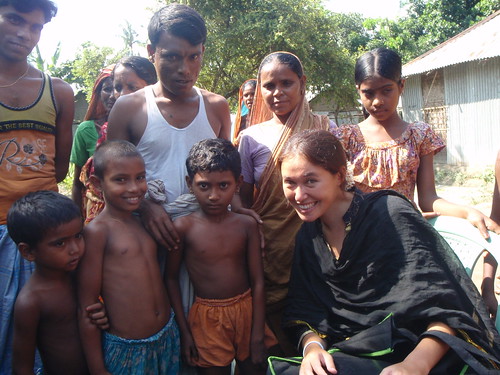Over a year of writing grant proposals, performing literature reviews, planning, networking, organizing, traveling to Bangladesh twice in the last year, and finally, enrolling subjects last week and again this week, had been all for this one moment: when the first subjects walked through the doors of the Mohammed Ali hospital in Bogra for their chest x-rays and interviews. My dream from two years ago of working on a project involving the shipbreaking industry was finally going to be a data collection reality and I could not have been more excited! However, there was one little problem.
They did not show up.
Monday revealed one of the largest hurdles I have hit so far. Hannan, the assistant health inspector, called that morning to inform me he had seen them off onto the correct bus at 7:30 am; the voyage should have been an hour and a half at the most, but hour after hour went by and once 12:30 rolled around, the harsh reality started to sink in that they would not be coming. This was followed by a feeling of dread that perhaps none of them would ever show up and I would be returning to Canada empty handed!
I believed the problem may have been confusion with bus connections, or simply a huge delay due to unreliable bus services in rural areas. I suggested to Hannan, that instead of seeing them off on a bus, they should be using something like a CNG (an autorickshaw) that would bring them directly to the hospital. I ran through countless scenarios in my head of what could have happened, but in the end, I knew I could only hope for a better turn out the next day, and perhaps using more direct transportation could help matters.
I arrived the next morning to find not only three subjects like expected, but four subjects; it turns out one man had been at the hospital that first morning but could not find us. This is impossible for me to fathom as the hospital is not large, most of the hospital staff are aware about me and what I am doing there, I was standing out front the entire time, and foreigners tend to stick out like a sore thumb in these settings. Anyhow, I was extremely pleased to see he had returned with this second group of subjects, and was still very keen on being a part of the study.
Apparently the other two no-shows had a change of heart because they thought I was going to give them vasectomies!!! Now, this just boggles my mind, but it was explained to me that there is a non-governmental organization (NGO) in town that provides people with some money and a free lungi (for men) or sari (for women), in exchange for a little operation, and because my monetary reimbursement for one day’s lost wages is the same amount, they, or some of their family members, confused me with this other organization. I am not sure if this means they are not listening during the reading of the consent form, or what this says about the meaning of “informed consent” here, and I am not entirely sure how to address this issue right now.
I had the opportunity to speak to these two men, who ended up coming to the hospital today after their colleagues assured them I was not sterilizing people. It sounds like they understood what was being asked of them at the time they provided consent, but afterward, family members started talking, someone in the village raised this point about the other NGO, and through an unfortunate series of conversations that rippled throughout the village, the entire message became skewed. I am not sure now if I have a better understanding of what happened, or if I am more confused than ever!
To end on a positive note, eight shipbreakers have now visited the hospital, had chest x-rays taken, and been interviewed. This part has proceeded smoothly and the hospital staff has been extremely accommodating. I can only hope this momentum can now be maintained and that there won’t be too many more surprises around the bend!

